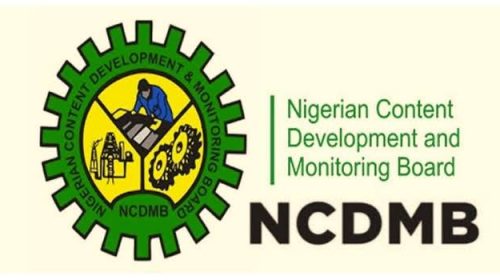Micro Pension: Providing Succour For SMEs

By Ngozi Onyeakusi— Over the years, Small and Medium Enterprises (SMEs) have been recognised as the bedrock of every nation’s economy.
SMEs in Nigeria, according to Small and Medium Enterprises Development Agency of Nigeria (SMEDAN) account for 96.7 per cent of businesses, 87.9 per cent of employment, and contribute 50 per cent to Nigeria’s gross domestic product (GDP). Unarguably, this places them at a pivotal position for driving the growth and development of Nigeria’s economy.
Unfortunately, these small business owners are plagued with a lot challenges ranging from challenges in accessing funds which could be traced to inadequate access to financial institutions and education, skills, experience of owners/managers, high interest rates and gender discrimination, among others.
Consequently, SMEs must fine ways of assisting themselves, at least to ensure
provision of financial security at old age.
According to the National Pension Commission (PenCom), the best thing that can happen to SMEs is for them to register under the Micro Pension Plan that allows the self employed and organisations with less than three employees to make financial contributions towards the provision of pension at their retirement.
MICRO PENSION PLAN
The Pension Reform Act (PRA) 2014 expanded coverage of the Contributory Pension Scheme (CPS) to the self-employed and persons working in organizations with less than 3 employees. As this category of workers constitute the larger percentage of the working population in the country, there is no doubt that to achieve the Pension Industry’s strategic objective of covering 30% of the working population in Nigeria under the CPS by the end of 2024, all efforts should be on deck to extend coverage to this important segment of the Nigerian economy. In addition, due to their widely dispersed nature and generally low and irregular incomes, there is need to provide a pension plan that would meet their special characteristics. In this regard, the Micro Pension Plan initiative has been conceived within the context of an industry wide strategy to bring this class of workers on board.
In implementing this initiative, the informal sector has been segmented into three broad categories. The low income earners, the high income earners and the SMEs. Each of these categories is going to be targeted with appropriate pension products and sensitization programmes that meet their peculiarities.
However, it is evident that a robust technological platform that would support the provision of customer services is necessary to effectively and efficiently register, collect contributions, provide Retirement Savings Account support, pay benefits and provide financial advisory services to this class of workers. Coincidently, special mobile phone applications had been successfully implemented in some jurisdictions for financial transactions including provision of pension services to the self-employed and informal sector workers. The success stories of these applications drives the confidence that similar platform can be designed and implemented in Nigeria. Consequently, the Commission had already commenced the sensitization of service providers and relevant regulators as well as the targeted workers in the informal sector with a view of creating the enabling environment and buy-in.
In addition, a Department has been established in the Commission to drive the implementation of the Micro Pension Plan.
FEATURES/BENEFITS OF MICRO PENSION PLAN
Contributions under Micro Pension are flexible
40% of the contribution is available for withdrawal before retirement while the remaining 60% of the contribution can only be accessed at an old age.
Contributions are safe and protected through strict regulations.
Micro Pension guarantees a secured future through steady income at retirement.
Contributions will grow over time to give the contributor valuable return/income at retirement
It reduces old age poverty and the process is easy and simple.
Micro Pension is voluntary and solely funded by the contributor.
Financial independence in old age is guaranteed .
Achievement of economic stability objectives of contributors is guaranteed.
Contributions will be passed on to the designated beneficiary in case of contributor’s death
Under the Micro Pension Plan, all Associations, Unions, Cooperatives and Trades as well as the Professionals are covered and can participate in the scheme.
WHO CAN REGISTER FOR MICRO PENSION
Persons above 18 years of age with legitimate sources of income can register with for Micro Pensions Plan under Section 2 (3) of the PRA 2014 and shall be resident in Nigeria.
Self-employed persons that belong to a Trade, Profession, Cooperative or Business Association.
Self-employed persons with a business registration as a company, partnership or enterprise.
Employees operating in the informal sector who work with or without formal written employment contract.
Other self-employed individuals.
The Contributions are made in Nigerian currency (Naira) and could be made daily, weekly or monthly.
Every contribution shall be split into two comprising 40% for contingent withdrawal and 60% for retirement benefits.
Giving insight on the plan, the Head, Corporate Communications of PenCom, Abdulqadir Dahiru, said the Micro Pension is targeting artisans, traders, mechanices, shoe makers and other self-employed persons, saying that they are free to enroll in the Micro Pension Plan of the Commission to guarantee a functional retirement plan they can hold-on to.
According to him, the major requirements for registration was that such individuals must be members of the association, because it is pertinent to show that the person is an informal worker.
He also said that the only difference between Mandatory pension and Micro Pension plan was that in the former both the employer and employee contribute while the Micro Person Plan is voluntary and solely funded by the contributor.
He further explained that every remittances made into the RSA, has 40 percent for contingency while normal retirement is 60 percent but that such a person must have contributed for at least three months to access the usual content portion.
Dahiru noted that about 90 percent of workers in Nigeria are in the informal sector, adding that this category of workers have no pension protection for old age hence, “there is a risk of old age poverty”.
He noted that the commission has come up with a new policy that assists contributiors own their own houses.
“Having contributed for 60 months that is (5years) the person can use 25percent of what is in the (RSA) for the payment of equity contributions to buy a house.






Leave a Reply